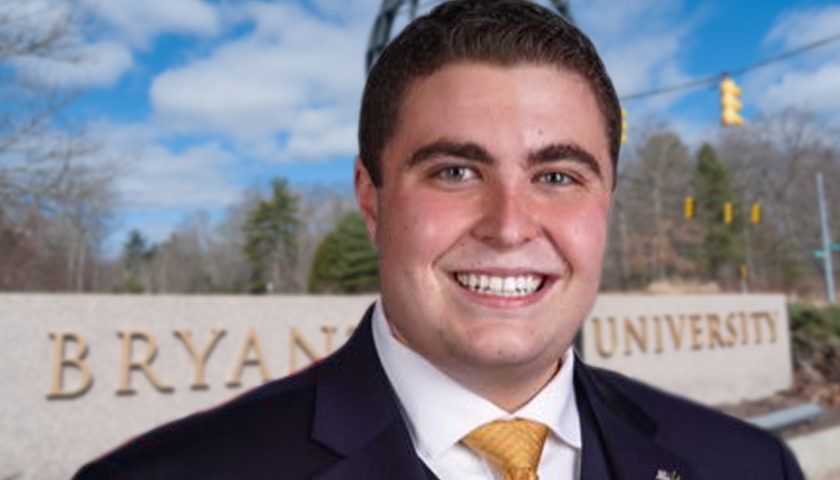by Dion Pierre
Bryant University in Smithfield, Rhode Island will close its Confucius Institute, according to an announcement by President Ross Gittell.
“After 15 years of values language and cultural programs provided through the Confucius Institute at Bryant University, we have chosen not to apply for continued funding at the expiration of the Confucius Institute contract,” Gittell wrote on March 22, “The university will evaluate changes that are taking place in China regarding U.S.-China Relations before making any future commitment.”
Gittell maintained that developing students’ “global mindset is a cornerstone of Bryant’s mission,” noting that the university will still offer “high quality business education through our curriculum offerings in Zhuhai [China].”
Student Brandon Fontaine, who is the Vice President of Student Organizations and the chair of the Bryant University College Republicans, celebrated the news on Twitter.
“I’m elated to say that Bryant University will be ending its Confucius Institute. I’m proud to have sponsored the 3 unanimous resolutions on this issue. This is undoubtedly the right move and this will only enhance the future of our university.”
In another tweet, Fontaine was spotlighted for his persistence in lobbying to change the university’s policy.
“Brandon has been working with Bryant on removing their Confucius Institute for years,” said Western Regional Vice Chair of the College Republicans Judah Waxelbaum, “This is truly an amazing accomplishment.”
Several universities across the country have shut down their Confucius Institutes in recent months following the federal government’s moving to restrict the Department of Defense’s funding of schools that operate similar institutes, which U.S. intelligence agencies have described as centers of Chinese Communist Party propaganda.
Still, however, dozens of universities in the U.S. still have operating Confucius Institutes, as Campus Reform recently highlighted.
– – –
Dion J. Pierre is a reporter for Campus Reform. After graduating from Hofstra University in 2016 (B.A. Political Science), Dion worked as a research assistant for Wall Street Journal Columnist and former editor-at-large of The American Interest, Walter Russell Mead, through the Public Interest Fellowship in Washington, D.C. In 2017, he joined the National Association of Scholars, where he published with Peter W. Wood Separate but Equal, Again: Neo-Segregation in American Higher Education, a study that explored the history and prevalence of racially segregated programs on college campuses. In 2020, Dion switched gears, trying his hand at canvassing neighborhoods on behalf of pro-liberty candidates with Young Americans for Liberty. His work, which has covered subjects ranging from climate extremism to ‘wokeness’ and censorship in big tech has been featured at National Review, Minding the Campus, The College Fix, Just the News, The Daily Caller, Campus Reform, The Federalist, and The Wall Street Journal. His two favorite hobbies are binge-reading and playing the electric guitar.
Photo “Bryant University” CC 4.0.








